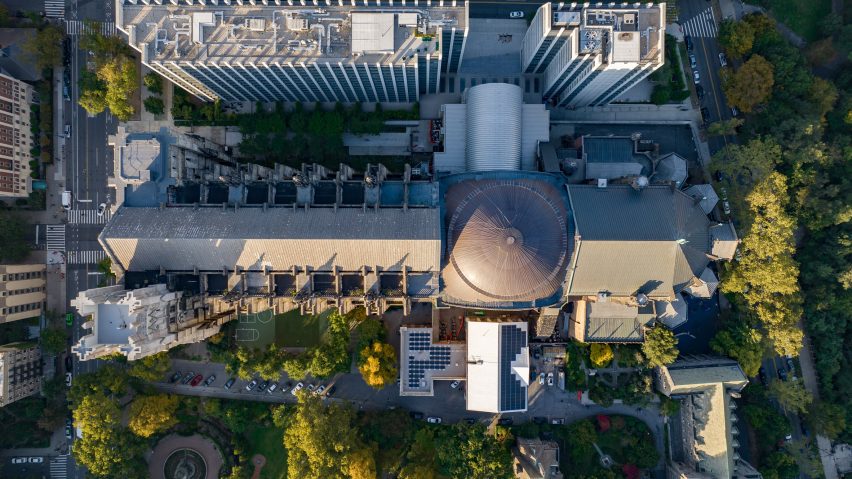
Ennead Architects places copper dome on New York cathedral in time for Easter
New York studio Ennead Architects has renovated the Cathedral Church of St John the Divine in Manhattan by adding a batten-seam copper dome that "could last another 100 years".
Ennead Architects was tasked with renovating the terracotta dome of the cathedral, which was first built in 1917 by Spanish-American architect Rafael Guastavino and features the largest Guastavino tile dome in the world. By some accounts the church itself is the largest in the United States at 120,555 square feet (11,200 square meters).
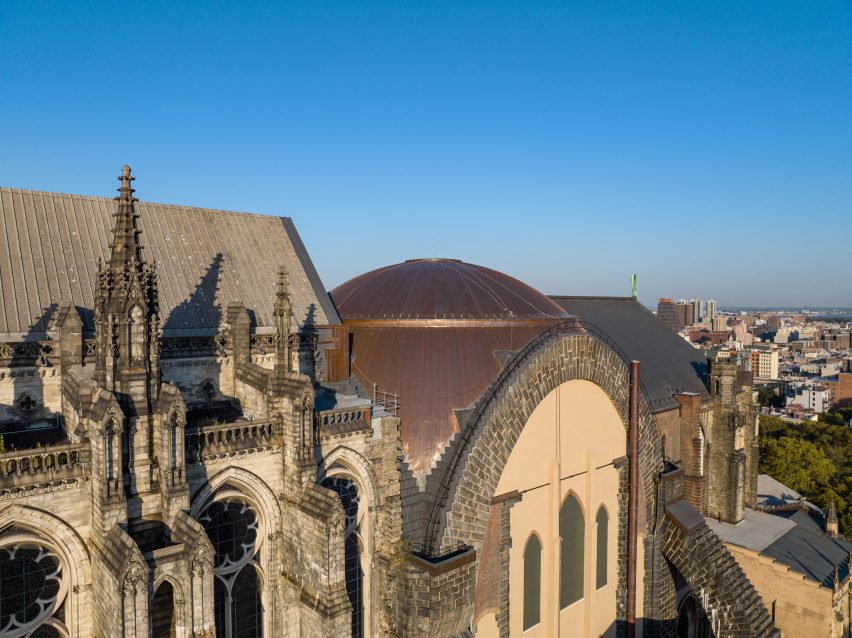
Ennead Architects, which has worked with the cathedral for the past 30 years, was charged with creating a shell to fit around the dome, which is 133 feet (40.6 metres) in diameter, to protect it from the elements.
The renovations included placing a copper dome on top of the tile and replacing the previous exterior of the dome to ensure that the space between the metal and stone wouldn't trap water.
"Initial conversations suggested patch work for a quicker fix, but this was soon rejected as water leakage became too big of a problem," associate principal Kevin Seymour and senior associate Charles Brainerd at Ennead told Dezeen.
"With the insulation layer causing water to remain trapped between the exterior of the dome and the layer itself, our team landed on a long-term solution of completely replacing the roofing layers of the dome."
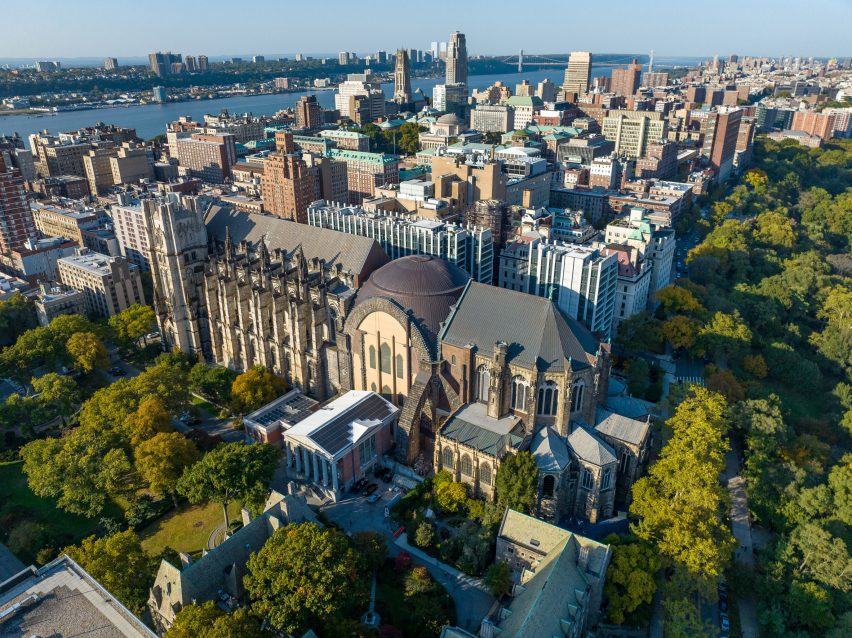
The design took into account the number of renovations that were deployed to deal with the sagging dome and the associated water damage since its construction.
"Due to its large scale, the Cathedral's Guastavino Dome has undergone multiple modifications throughout its life to control excessive movement, cracking, and water infiltration," said Seymour and Brainerd.
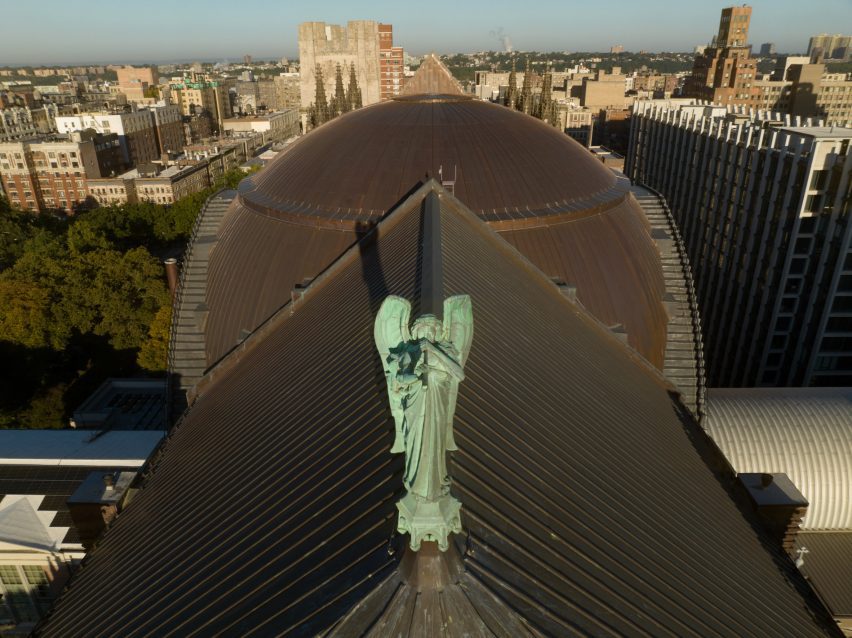
These included adding steel rods in 1916, masonry repairs in 1970 and renovating an exterior arch in 2012.
In order to ensure that the copper's expansion and contraction caused by shifts in the weather didn't harm the dome, the team removed the old sodden insulation, gave the tiles time to dry and reinstalled spray foam insulation.
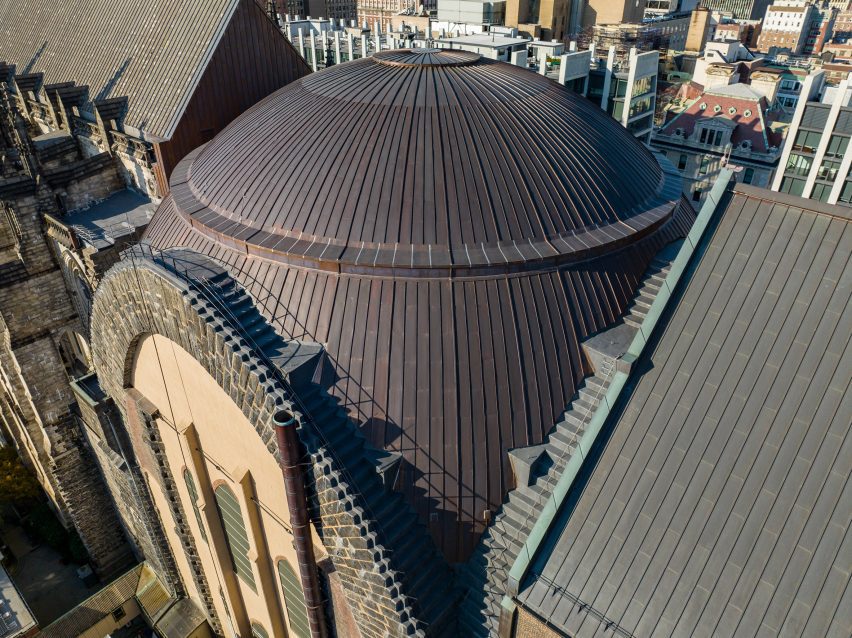
The hope is that as the copper oxidizes it will match some of the surrounding buildings as well as the statue of the angel Gabriel on the apse.
Restoration of the tile itself was also part of the project. Building Conservation Associates, Inc. and James R. Gainfort AIA Consulting Architects PC were brought on to assess the damage to the classic tile and missing or damaged tiles were replaced by customised tiles created by Ohio-based Sandkuhl Clay Works.
"With proper maintenance, it could last another 100 years," said the studio.
"The dome was meant to temporarily cover the cathedral crossing until a massive tower could be built above it," said dean The Very Reverend Patrick Malloy, noting that the Statue of Liberty could fit underneath the dome.
"As the New York Times recently reported, the ground under the cathedral actually could not bear the weight of the proposed tower, so the dome is, de facto, the permanent roof of a large section of our enormous building."
"Now, cleaned and repaired, it glows."
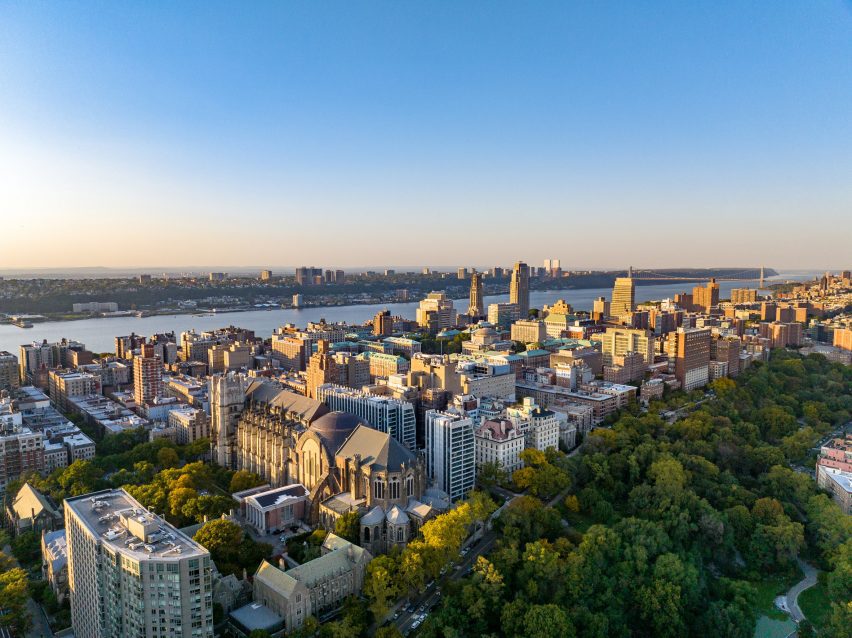
Ennead's work with the cathedral has included its "long-term architectural vision" as well as maintenance and repairs to the structure as well as a multi-year renovation to the Cathedral School.
Other work on religious buildings by high-profile architecture studios includes the rebuilding of The St Nicholas Greek Orthodox Church at the site of the World Trade Centre by Santiago Calatrava.
The photography is by Demian Neufeld.